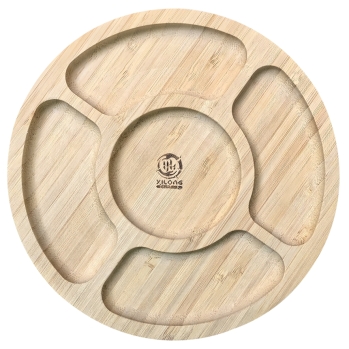How Much Environmental Impact Can Bamboo Products Really Reduce?
In an era where businesses face increasing pressure to reduce their environmental footprint, many companies are asking a crucial question: can switching to bamboo products actually make a measurable difference? The answer is more significant than most people realize. Scientific studies and real-world applications demonstrate that bamboo products can reduce environmental impact by up to 75% compared to traditional materials, making them a powerful tool for companies serious about sustainability.
The Carbon Footprint Game-Changer
Bamboo's environmental advantages begin with its exceptional carbon sequestration capabilities. A single bamboo plant can absorb up to 35% more carbon dioxide than equivalent tree species, making it nature's most efficient carbon capture system. When harvested and processed into commercial products, this stored carbon remains locked away for the product's entire lifespan.
What's honestly impressive is bamboo's rapid regeneration cycle. Unlike hardwood trees that require 25-50 years to reach maturity, bamboo reaches full size in just 3-5 years. This means businesses can source bamboo products without contributing to deforestation or long-term resource depletion. The math is simple: faster growth equals more sustainable supply chains.
Water Conservation Benefits
Traditional manufacturing processes consume enormous amounts of water, but bamboo processing requires significantly less. Manufacturing bamboo panels and finished products typically uses 30-50% less water than comparable wood processing operations. For businesses tracking their water footprint, this reduction represents substantial environmental savings.
The irrigation requirements for bamboo cultivation are also minimal compared to other commercial crops. Most bamboo species thrive on natural rainfall without requiring extensive irrigation systems. This characteristic makes bamboo cultivation particularly valuable in regions where water conservation is essential.
Waste Reduction Through Durability
One of bamboo's most significant environmental contributions comes from product longevity. Quality bamboo products often last 2-3 times longer than plastic alternatives, dramatically reducing replacement frequency and associated waste generation. This durability factor multiplies the environmental benefits throughout the product lifecycle.
Leading bamboo manufacturers in China have developed processing techniques that further enhance durability without compromising environmental benefits. Advanced treatments like UV coating extend product lifespans even further, creating a positive cycle where environmental benefits compound over time.
Chemical-Free Processing Advantages
Unlike many traditional materials that require toxic chemicals for processing and preservation, bamboo can be processed using environmentally friendly methods. Natural bamboo contains compounds that provide inherent resistance to pests and moisture, reducing the need for chemical treatments that can harm both environment and human health.
Modern bamboo suppliers have embraced clean processing technologies that eliminate harmful emissions and waste products. These improvements make bamboo products suitable for sensitive environments like healthcare facilities and schools where air quality is paramount.
End-of-Life Environmental Benefits
When bamboo products reach the end of their useful life, they provide environmental benefits that synthetic materials cannot match. Bamboo products are completely biodegradable, typically decomposing within 1-3 years under normal conditions. This characteristic eliminates the long-term waste accumulation problems associated with plastic products.
Composting bamboo products actually enriches soil quality, creating value even after the product's primary function ends. Many businesses are incorporating this benefit into their waste management strategies, turning product disposal into an environmental positive.
Quantifying Real-World Impact
Businesses implementing bamboo product strategies report measurable environmental improvements. A typical restaurant switching from plastic to bamboo tableware can reduce their plastic waste by 60-80% while maintaining operational efficiency. Hotels replacing traditional furniture with bamboo alternatives often achieve similar reductions in their overall environmental footprint.
These improvements translate into tangible benefits for corporate sustainability reporting. Companies can document specific environmental improvements that support their broader sustainability commitments while maintaining operational effectiveness.
Supply Chain Sustainability
Bamboo cultivation supports sustainable agriculture practices that benefit entire ecosystems. Bamboo farms help prevent soil erosion, support biodiversity, and require minimal pesticide or fertilizer inputs. These characteristics create positive environmental impacts that extend far beyond the immediate manufacturing process.
Responsible bamboo suppliers maintain certifications that verify sustainable harvesting practices. These certifications provide businesses with documented proof that their material choices support rather than harm environmental conservation efforts.
Economic and Environmental Synergy
The environmental benefits of bamboo products often align with economic advantages, creating win-win scenarios for forward-thinking businesses. Lower replacement costs, reduced waste disposal expenses, and improved brand positioning can offset any premium pricing while delivering measurable environmental improvements.
Many companies discover that bamboo products enhance their market position by appealing to environmentally conscious consumers. This market advantage can translate into increased sales and customer loyalty that supports business growth while advancing environmental objectives.
Measuring Your Impact
Businesses serious about environmental impact measurement can track specific metrics when implementing bamboo product strategies. Carbon footprint reduction, waste stream changes, and resource consumption modifications provide quantifiable data that demonstrates real progress toward sustainability goals.
Professional bamboo manufacturers can provide detailed environmental impact data for their products, enabling accurate measurement and reporting. This data supports corporate sustainability reporting requirements while providing documentation for stakeholder communications.
The Scalability Factor
Individual businesses choosing bamboo products create meaningful environmental benefits, but the real impact comes from widespread adoption across industries. As more companies embrace bamboo alternatives, the cumulative effect creates substantial positive change that benefits everyone.
This scalability potential makes bamboo product adoption particularly valuable for industry leaders seeking to drive positive change throughout their sectors. Early adopters often find competitive advantages that reward their environmental leadership while supporting broader sustainability objectives.
Conclusion: Real Numbers, Real Impact
The environmental benefits of bamboo products are not theoretical – they're measurable, significant, and achievable for businesses of all sizes. From carbon sequestration and waste reduction to water conservation and end-of-life benefits, bamboo products deliver documented environmental improvements that support both corporate sustainability goals and operational efficiency.
For companies seeking meaningful ways to reduce their environmental impact without compromising performance or profitability, bamboo products offer a proven solution. The question isn't whether bamboo can make a difference – it's how quickly your business can begin realizing these environmental benefits.







